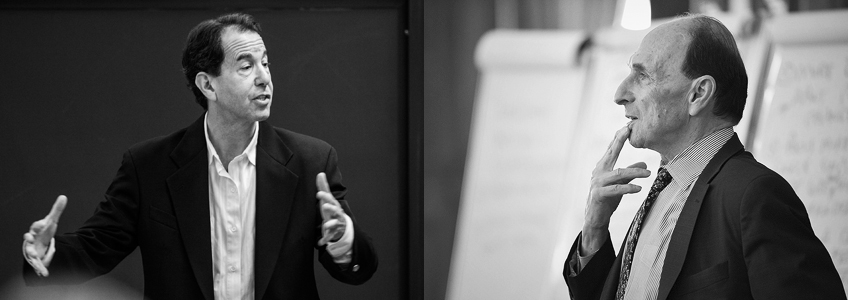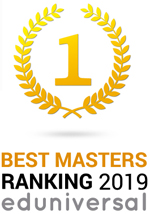Sustainable deep change: adaptation versus transformation

April, 08 2019 | Ronald Heifetz & Marty Linsky
Adaptability has been an essential ingredient for surviving and thriving for every species of life, from life’s beginning on Earth.
Of course, this is also true for humans and groups of humans. Any human system trying to meet difficult challenges and flourish in the face of uncertainty and change must be adaptive, whatever form that system takes: global networks, a nation, a tribe, a town, a company, a family, or a person.
So if your community, however you define it, needs to focus on enhancing one skill set, one capacity, one competency to help ensure going forward successfully, choose adaptability. What holds for any human system, we think holds for you as an individual as well.
Now More than Ever
In general, productive change must be adaptive to be sustainable.
While the need for adaptability has always been critical, never has it been as front and centre as it is today. Change is rapid and constant. The future is unpredictable and uncertain. People everywhere are working hard to figure out how to adapt to the multiple daunting challenges facing the world: wars and refugees; stateless and state-sponsored terrorism; the effects of the climate change in the violence of storms, flooding of coastal cities, and fire-generating drought; the dangers of new viral pandemics; population growth that exceeds the carrying capacity of families and economies. The Internet and its social media offspring have changed how human beings communicate with one another, how war is fought, and how politics are played. The Great Recession of 2008 not only threw the world-wide equity markets into free-fall but also led to a recovery that fell unevenly, creating a widening income gap.
Adaptation Means Loss
All of this volatility has surfaced festering challenges in the world order and in the differential experiences of those people who were riding the waves versus those who felt they were drowning in them. Inevitably, people experienced those in authority as letting them down, not meeting their expectations, not hearing their pain, talking at them rather than listening to them. Feeling betrayed by unkept promises and increasingly insecure, it is not surprising that many people angrily retreated into their narrowest identity groups. The strain on solidarity in diversity is palpable in many places, in populist election victories around the world and potential exits from the European Union.
In leadership terms, these conditions have led inexorably to yearning for clear direction, protection and a restoration of order. The conditions of our times create a political marketplace for certainty and answers.
Politically, extreme movements have emerged in Europe, the United States and elsewhere, on both the left and the right, often entering and upending mainstream electoral processes. Elections in democratic settings have been won by politicians with authoritarian inclinations and an appeal promising a restoration of order, predictability and calm, the "the good old days." The key word in President Trump's 2016 campaign mantra, "Make America Great Again" was "Again." The desire for restoration, whether you share that yearning or not, is a pushback against the difficulties and discomfort of adapting to new, unfamiliar, often threatening realities. Politicians such as Trump in the US, the Five Star Movement and the League in Italy, and Viktor Orban in Hungary gained traction by blaming outsiders, offering simple answers and pain-free solutions, promising to put an end to the turmoil. Insulated self-righteous elites and establishments were caught off-guard.
The combination of the constancy, complexity, speed and depth of the change is what is totally new for all of us. With deep, constant change comes loss: people left behind, long-held values questioned, beloved norms and practices undone, and the reassuring security of familiarity and predictability gone, simply and suddenly gone.
People do not resist change, per se. That is a myth. People welcome change when they believe it is going to be good for them. No one gives away a winning lottery ticket. What people push back against is the threat, fear, or often inevitability of loss that comes with adaptation. Look no further than the grassroots mobilisation in an industrial area — New York’s Queens District — that succeeded in February 2019 to force Amazon to withdraw its plans to locate there, despite the promise of thousands of new jobs and the political support of both the Governor and the Mayor, two politicians who almost never agree on anything. The potential gains were quite real but so were the potential losses to a community.
The Transformational Leadership Trap
For a long time, before this period of constant change and uncertainty, Transformational Leadership has been an extremely attractive frame for change. Understandably frustrated with seemingly intractable problems, people want to “clear the deck” and start anew. However, in our current reality, transformation by itself is problematic as a frame for the practice of leadership in the context of the need for profound change. First, it encourages self-referential grandiosity – “I have a transformational vision and now I am going to sell it to you.” Leadership seen in this light all too readily becomes about “me and my vision” rather than the collective work to be done. History shows us that dictators and demagogues arise in times of crisis, when people are so angry about the past or distraught about the present that they become vulnerable to charlatans with certainty and easy answers. The transformational mindset does not begin with a diagnostic focus and search process: the crucial step of listening to comprehend the gap between values, capacities, and conditions, before formulating a path forward. Rarely does it encourage the quest for shared purposes; far too often, the self-styled “transformational leader” begins with a solution, and then views leadership as a sales problem of inspiration and persuasion.
Second, by itself, the transformational mindset tends to be ahistorical. It tends to start with the change idea, perhaps a “best practice,” with little respect for the soil in which it must take root. Even if it is on paper a great idea, the importation of the idea into a local environment risks uprooting more than it should, disorienting and devaluing people more than is needed, and in the end often generates a cultural immune reaction that rejects or distorts the original idea, regardless of one’s good intention. The allergic reaction may happen quickly (Egypt, Yemen, and The Arab Spring), or it may take forty years (The Chinese Revolution) or sixty years (The Russian Revolution).
Third, emphasising transformative change alone encourages passionate and courageous people to seek big, systemic, change but also risks encouraging them to rush to scale and discount the incremental and transactional day-to-day leadership work of change. The world today needs to build new capacities — new adaptations — at every level, from the way families raise children to the way neighbours, consumers, and citizens interact, to the ways we operate across national boundaries and among Nation-States. The challenges of the 21st Century need not a single savior, but everyday leadership from people mobilising collective creativity in dealing with tough problems within their reach from wherever they live. [1]
Sustainable Change is Adaptive
Successful, deep change that enhances people’s capacity to live up to their values, thrive in new ways, respond to new conditions is more evolutionary than revolutionary, conserving far more cultural DNA than it tosses out. Even Google’s search engine depended upon and conserved an already evolved economic and technological infrastructure -- the U.S. economic system and the growing market for web-based products, a rich network of tech industries, the ecosystem of Silicon Valley, and many previous engineering solutions, including lessons from the search engines that preceded it. Google’s technology has transformed our human capacities in a sustainable way because these deep changes took root in established technological, economic, and cultural competencies, institutions, and values, and built from there. Although Google’s business model, based upon advertising revenues and new methods of data-gathering and analysis, has transformed the online marketplace, much of it drew upon essential lessons and conserved essential capacities that had already evolved over the course of generations in advertising and marketing. To take a historical example, The American Revolution conserved most of the cultural DNA of Great Britain, its language, Arts, Science, political theory, and the nascent free-market system. A nation built upon values rather than ethnicity, enabling an architecture for diversity, was not only transformative, it was also adaptive. The Founding Fathers kept far more than they changed.
For deep change to be sustainable, it must be adaptive, both to the culture in which it is to take root, and to the changing environment in which it must successfully engage. It needs to start with listening and learning, finding out where people are, valuing what is best in what they already know, value, and do, and build from there. It is dangerous to lead with only a change idea in mind. We suggest that you need both a healthy respect for the values, competence, and history of people, as well as the changing environment, to respond to new challenges and take advantage of new openings.
Ronald Heifetz is the King Hussein bin Talal Senior Lecturer in Public Leadership at Harvard Kennedy School and the founder of the Center for Public Leadership. Heifetz speaks extensively and advises heads of governments, businesses, and non-profit organisations throughout the world. He co-developed the adaptive leadership framework. Marty Linsky is Adjunct Lecturer in Public Policy at Harvard Kennedy School. He teaches exclusively in the School's executive programmes and chairs several of them. He co-founded, with Dr. Ronald Heifetz, Cambridge Leadership Associates (www.cambridge-leadership.com), a leadership consulting, training and coaching practice.
References
[1] "In Praise of the Incomplete Leader." Ancona, Deborah L., Thomas W. Malone, Wanda J. Orlikowski and Peter M. Senge. Harvard Business Review, February 2007.
Ronald A. Heifetz & Marty Linsky, Leadership on the Line, With a New Preface: Staying Alive Through the Dangers of Change, Harvard Business Review Press, 2017.






















It is mandatory to be registered to comment
Click here to access.
Click here to register and receive our newsletter.